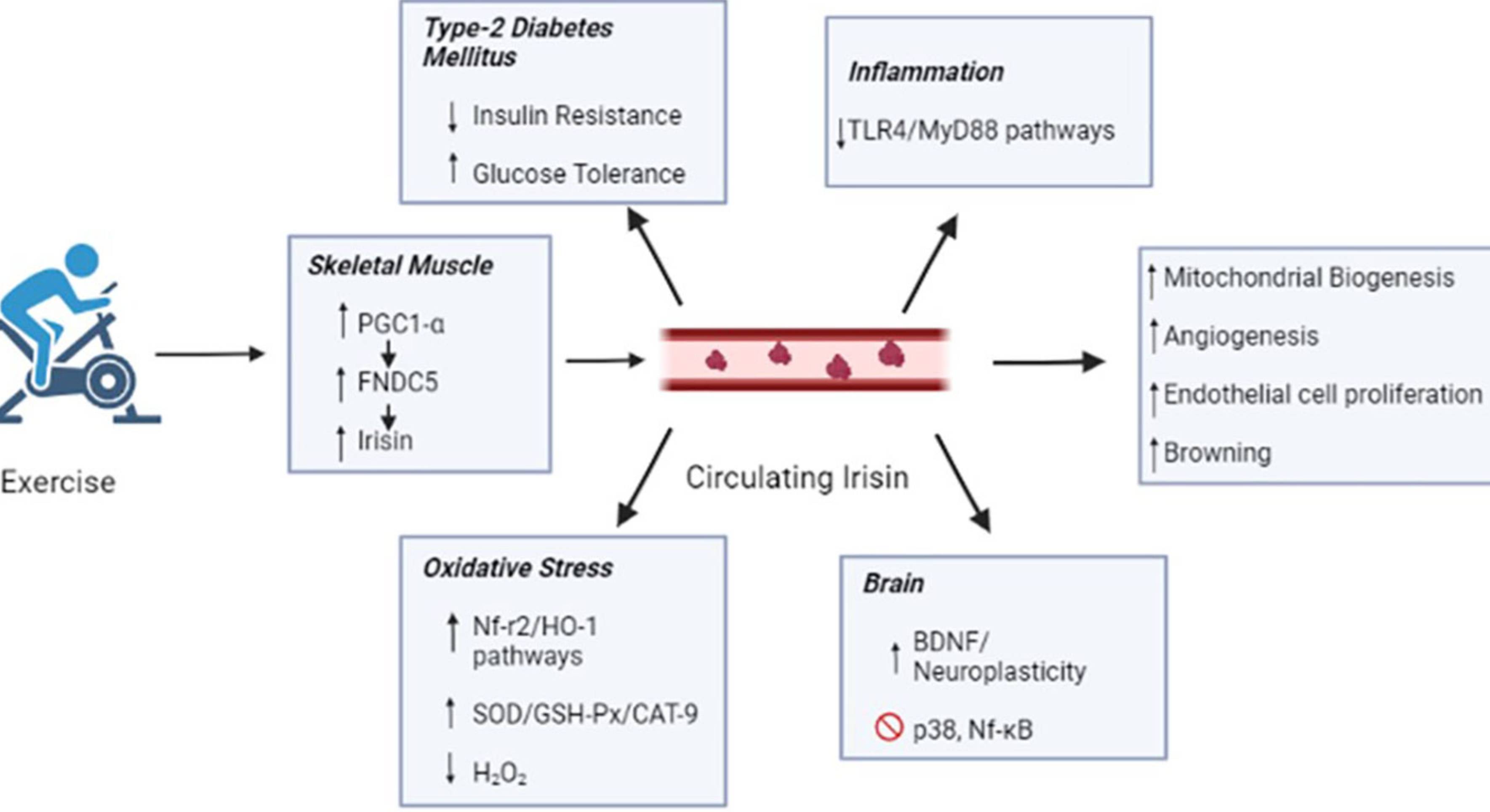Fasting for 20 h does not affect exercise-induced increases in circulating BDNF in humans
Travis D. Gibbons, J Physiol 11 January 2023
Intermittent fasting and exercise provide neuroprotection from age-related cognitive decline. A link between these two seemingly distinct stressors is their capability to steer the brain away from exclusively glucose metabolism. This cerebral substrate switch has been implicated in upregulating brain-derived neurotrophic factor (BDNF), a protein involved in neuroplasticity, learning and memory, and may underlie some of these neuroprotective effects. We examined the isolated and interactive effects of
(1) 20-h fasting,
(2) 90-min light exercise, and
(3) high-intensity exercise on peripheral venous BDNF in 12 human volunteers.
A follow-up study isolated the influence of cerebrovascular shear stress on circulating BDNF. Fasting for 20 h decreased glucose and increased ketones (P ≤ 0.0157) but had no effect on BDNF (P ≥ 0.4637). Light cycling at 25% of peak oxygen uptake increased serum BDNF by 6 ± 8% (independent of being fed or fasted) and was mediated by a 7 ± 6% increase in platelets (P < 0.0001). Plasma BDNF was increased from 336 pg l−1 [46,626] to 390 pg l−1 [127,653] by 90-min of light cycling (P = 0.0128). Six 40-s intervals at 100% of increased plasma and serum BDNF, as well as the BDNF-per-platelet ratio 4- to 5-fold more than light exercise did (P ≤ 0.0044). Plasma BDNF was correlated with circulating lactate during the high-intensity intervals (r = 0.47, P = 0.0057), but not during light exercise (P = 0.7407). Changes in cerebral shear stress – whether occurring naturally during exercise or induced experimentally with inspired CO2 – did not correspond with changes in BDNF (P ≥ 0.2730).
BDNF responses to low-intensity exercise are mediated by increased circulating platelets, and increasing either exercise duration or particularly intensity is required to liberate free BDNF.














